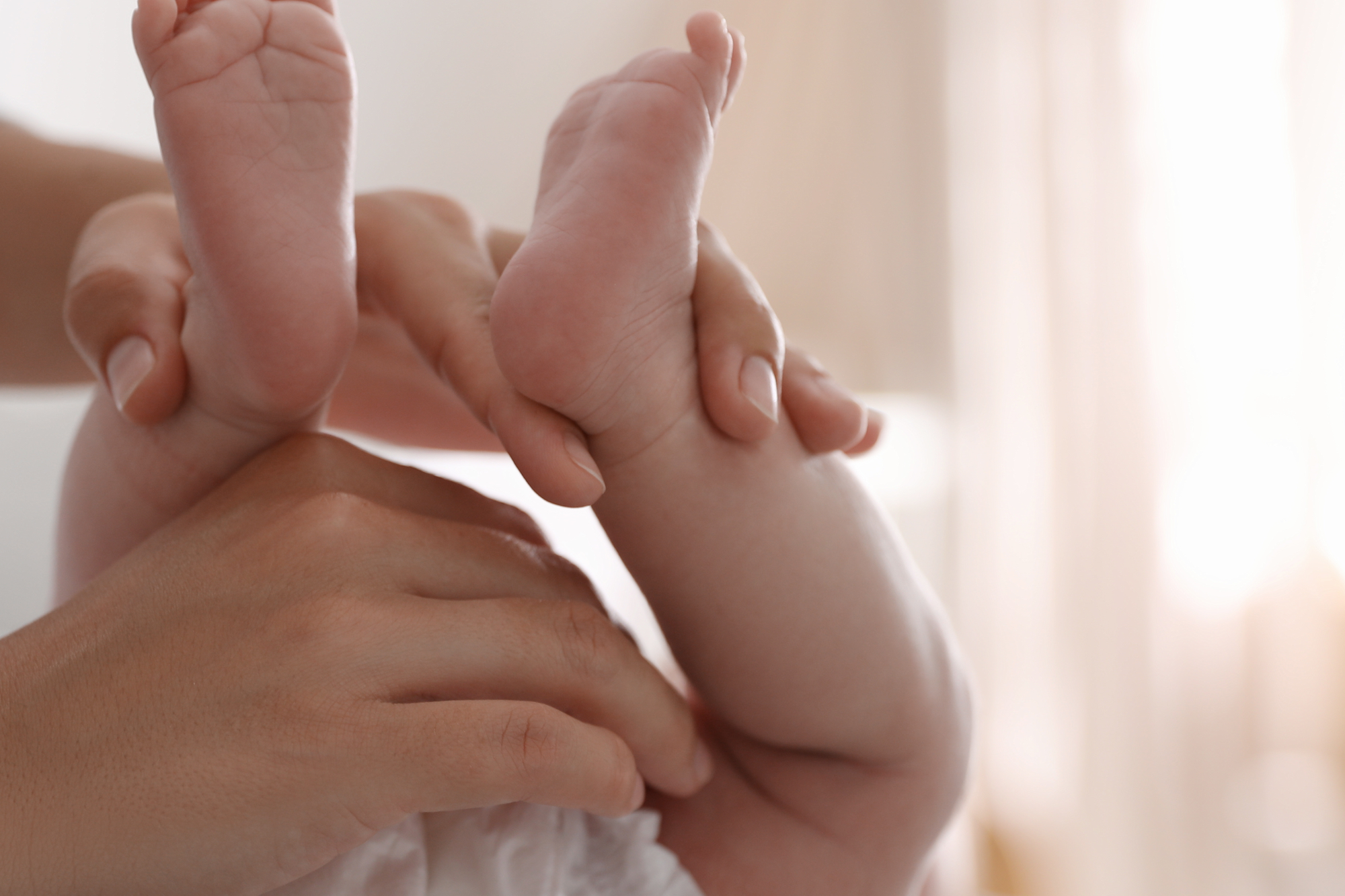Let’s talk about something that can surprise even the most attentive parent: spotting white poop in your baby’s diaper. It’s not common, and it’s definitely something to take seriously. In this article, we’ll walk through what white stools could mean, what might be causing them, and when it’s time to call your pediatrician.

First Things First: Don’t Panic, But Don’t Ignore It
If your baby’s poop suddenly looks pale, chalky, or white, it’s easy to feel alarmed. And while it’s not always a sign of something serious, it’s not something to brush off either. Most of the time, baby poop ranges from yellow to green to brown—colors that reflect healthy digestion. But white stool stands out for a reason, and it usually means something’s off.
Understanding Baby Poop Colors
As a parent, you quickly learn that diaper changes come with a rainbow of surprises. Mustard yellow is normal for breastfed babies, while brown or green is common for formula-fed ones. Green poop can also show up during teething, illness, or after iron-fortified formula. Black poop is expected in the first few days after birth (that’s meconium), but if it shows up later, it could indicate digested blood—and that’s worth a call to your doctor.


White stool, though, is different. It often signals a lack of bile, which is what gives poop its usual color. No bile flow = pale poop. And that could point to a bigger issue.
What Causes White Baby Poop?
Not all pale or white poop means something serious. Sometimes it’s just a result of diet or a temporary digestion hiccup. But consistent white stool over several diaper changes deserves attention. Here are a few possible causes:
- Malabsorption: If your baby isn’t breaking down fat properly, you might see white, greasy, or chalky poop. This could be due to a food allergy, digestive disorder, or recent dietary change.
- Mucus in the stool: If the poop looks white and slimy or stringy, it might be mucus. That can happen with gut irritation, infection, or inflammation—and it often comes with other symptoms like diarrhea or fussiness.

Medical Conditions Linked to White Stools
While some causes are mild, others are more serious. Here are two important ones to know:
- Biliary Atresia: This rare but serious liver condition blocks or affects the bile ducts, preventing bile from reaching the intestines. Without bile, your baby can’t digest fat properly, and liver damage can follow. Look out for white stools, yellowing skin or eyes (jaundice), or a swollen belly. Early diagnosis is critical, so don’t wait to get help.
- Cystic Fibrosis: This genetic disorder affects the lungs and digestive system. Thick mucus can block the pancreas, stopping digestive enzymes from breaking down food. Signs may include white or oily poop, poor weight gain, and frequent lung infections. Mayo clinic – Cystic Fibrosis in infants.
When to Call the Pediatrician
White poop once or twice could be harmless, especially if it clears up quickly. But if it sticks around for more than a couple of days, or comes with symptoms like vomiting, diarrhea, weight loss, or low energy—call your pediatrician.
Changes in stool color alone don’t always tell the whole story. Your baby’s overall mood, appetite, and growth patterns matter too.
How Doctors Diagnose and Treat White Poop
Your pediatrician will start by asking about feeding habits, recent changes, and other symptoms. They may run tests like bloodwork, stool analysis, or imaging (such as an ultrasound or HIDA scan) to check how well the bile ducts and liver are working.
If a condition like malabsorption or a food allergy is the cause, treatment might be as simple as changing your baby’s diet or adding supplements. But if it’s something more complex—like biliary atresia or cystic fibrosis—more specialized care will be needed. That could include medications, surgery, or working with a pediatric gastroenterologist.
Preventing Digestive Trouble
While you can’t prevent every issue, you can support your baby’s digestive health:
- If you’re formula-feeding, always mix according to instructions. Too much powder or water can affect nutrient absorption and may lead to stool changes.
- Avoid overfeeding if you are bottle-feeding. It can overwhelm your baby’s developing digestive system and sometimes cause whitish poop.
- Keep a close eye on how your baby reacts to new foods or formula changes.

Final Thoughts
White baby poop isn’t always a cause for alarm—but it’s definitely a reason to pay attention. Whether it’s due to a minor issue like a dietary tweak or something more serious like bile flow problems, trust your instincts. You know your baby best.
If something doesn’t look or feel right, reach out to your pediatrician. They’ll help figure out what’s going on and guide you through the next steps—whatever they may be.
References and Resources
- Health.choc – Liver disease
- American pregnancy – Understanding your baby’s stool
- NHS – Poop frequency of newborns
Q&A
White baby poop can be caused by a few different things—some harmless, others more serious. A common benign cause is undigested fat, especially if your baby is having trouble absorbing nutrients. This might happen with dietary changes, food sensitivities, or temporary digestive issues. Sometimes, white slimy poop or whitish stool can also be due to mucus, which is not always a red flag, especially in newborns.
However, white in faeces can also be a sign that your baby’s liver or bile ducts aren’t working properly. Conditions like biliary atresia or cystic fibrosis can block or reduce bile flow, which gives poop its color. When bile doesn’t reach the intestines, it can cause pale poop, white fecal matter, or even a chalky stool. If you see this consistently, especially in combination with other symptoms like jaundice or poor weight gain, call your pediatrician right away.
Not usually. White baby poop isn’t a common sign of an infection. Infections tend to cause green or very loose, runny stools—often with a foul odor and sometimes mucus. That said, white slimy stool can occasionally show up if there’s inflammation in the digestive tract. And some viral or bacterial infections might lead to temporary changes in stool color, including pale bowel stools.
If your infant’s poop is white and they also have a fever, diarrhea, vomiting, or seem lethargic, that could point to something more than just a diet issue. Infection isn’t the most likely cause of white poop. But any white faeces that persist should be taken seriously and checked out by your pediatrician.


